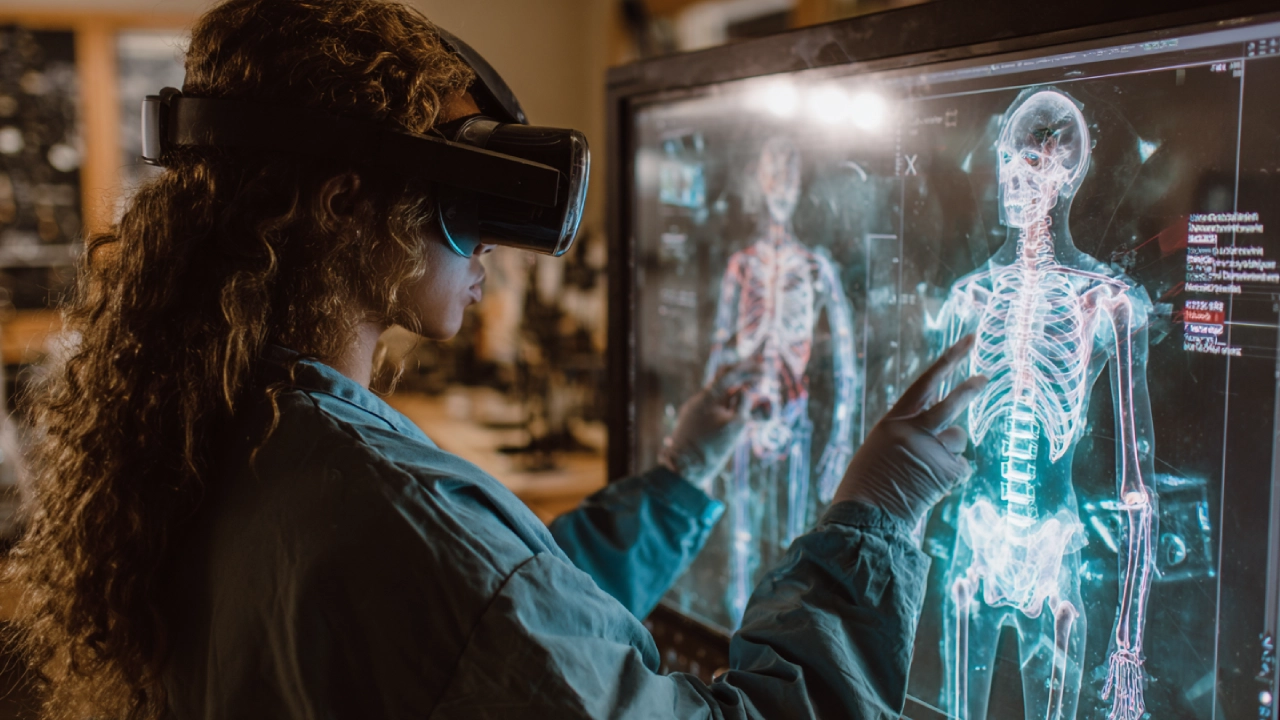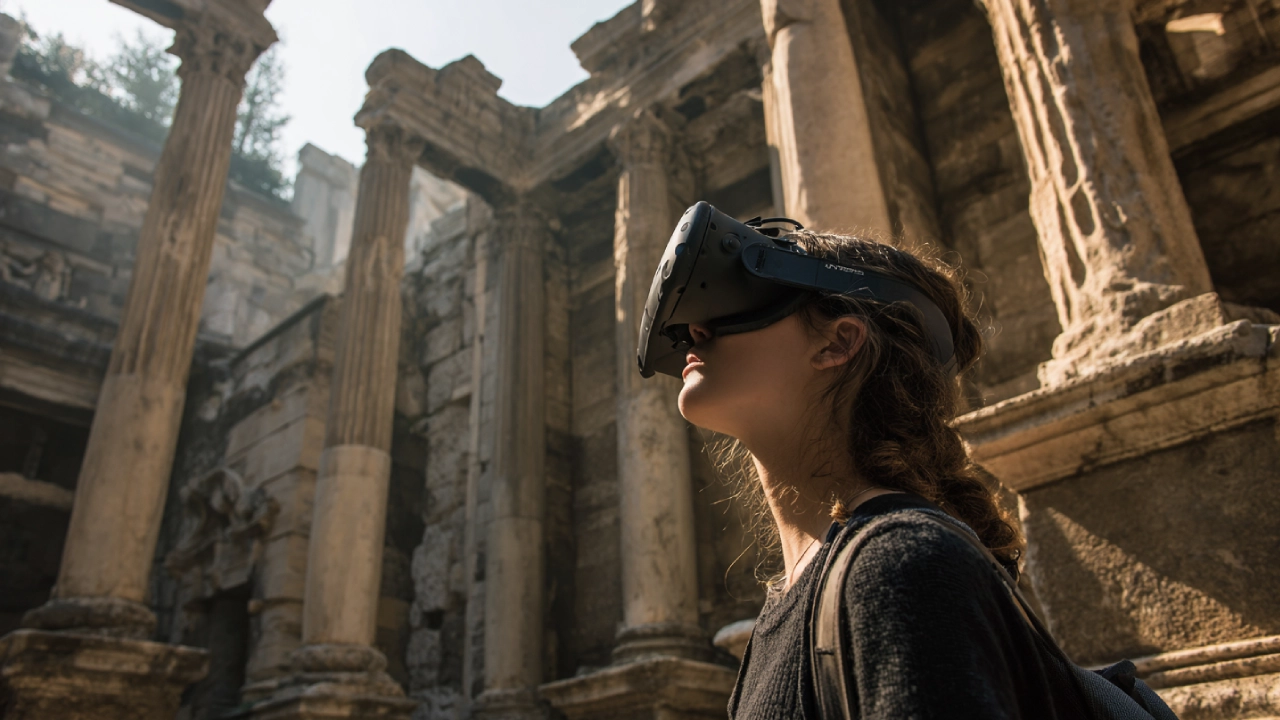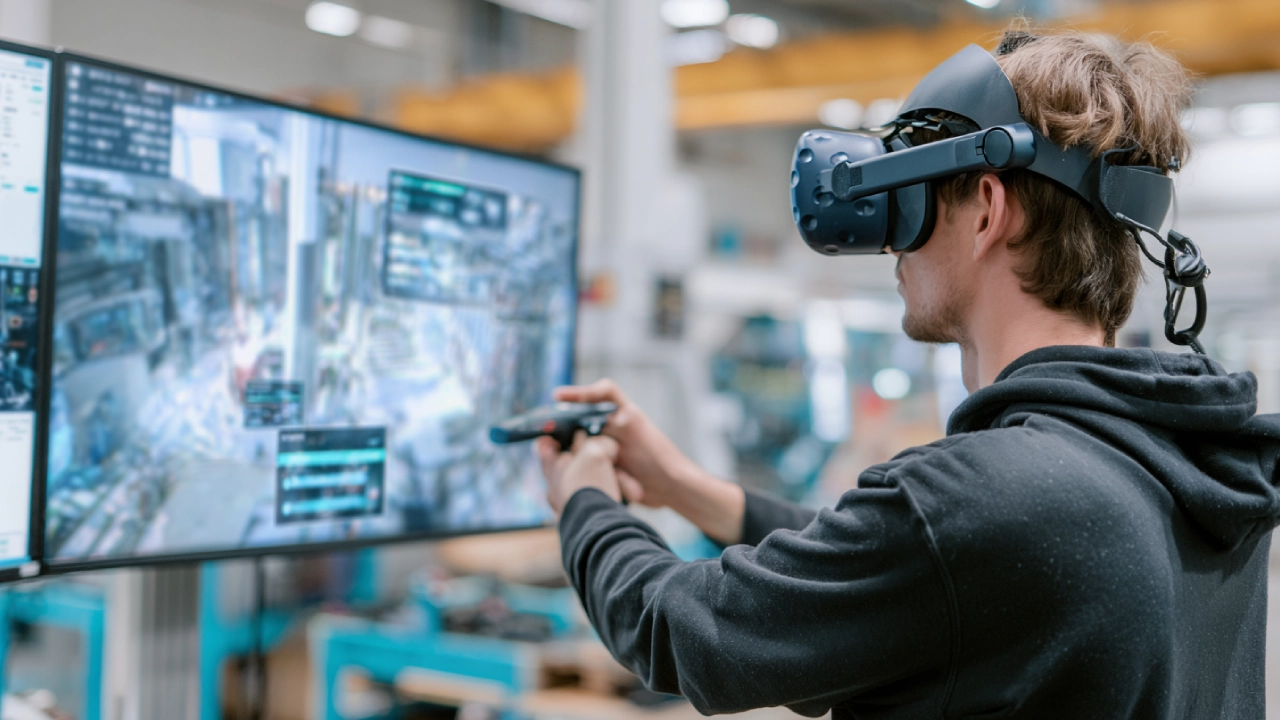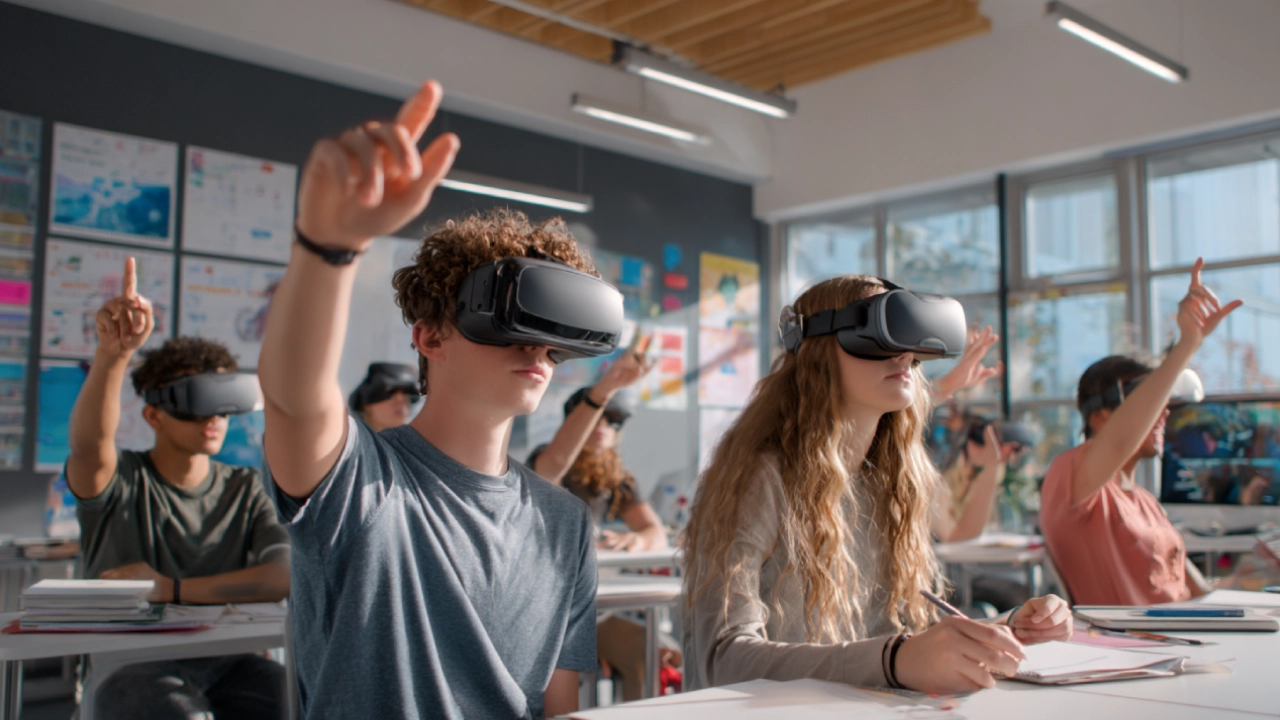Virtual Reality (VR) is transforming the way we teach and learn. It is no longer just about explaining concepts on a blackboard or watching videos on a screen: now students can experience the content in first person, interact with it and immerse themselves in experiences they could only imagine before.
In educational environments, VR makes it possible to explore historical worlds, simulate scientific processes, train technical skills or understand complex structures from a visual, practical and immersive approach. Moreover, it can be adapted to primary and secondary education as well as to professional, university or corporate training.
At DeuSens we develop Virtual Reality solutions applied to education, which enrich the learning process, increase student motivation and facilitate knowledge retention in an effective and memorable way.
Benefits of Virtual Reality in the education sector
Including immersive experiences in teaching generates direct benefits:
- Greater content retention: experiential learning improves comprehension and recall.
- Greater student involvement: interactivity awakens interest and active participation.
- Safe and risk-free learning: ideal for simulating real situations without consequences.
- Access to inaccessible environments: travel to space, to the interior of the human body or to other centuries.
- Adaptation to different learning styles: visual, kinesthetic, auditory...
GET STARTED TODAY! Write to us for a free demonstration of how VR can transform educational methods.
Contact us
Practical applications of Virtual Reality in education
The possibilities of Virtual Reality in education are as broad as they are creative:
- Virtual visits to historical or geographical places
- Complex scientific and technical simulations
- Professional training in virtual industrial environments
- Recreation of emergency or first aid scenarios
- Exploration of the human body in 3D for subjects such as biology
- Inclusive experiences for students with special needs
SUCCESS CASE: Discover how to integrate the education of the future by applying Virtual Reality solutions.
Consult us now
Technologies and tools used
To develop effective and scalable educational VR experiences, we use:
- Platforms in Unity or Unreal Engine for customized content
- Devices such as Meta Quest, Pico or HTC Vive for educational centers
- Interactive and gamified models adapted to different levels
- Analytics systems to track student progress
- Interfaces accessible and easy to implement in classrooms or laboratories
EQUIPMENT AND SOFTWARE: Contact us to know the best technological options adapted to your needs.
More info
The future of Virtual Reality applied to educational training
The use of Virtual Reality in education will continue to grow as its cost decreases and its accessibility increases. In the near future, we will see hybrid classrooms where VR and face-to-face learning coexist, training content designed exclusively in immersive environments, and a more personalized, adaptive and motivating education.
VR democratizes access to knowledge: it brings previously unthinkable experiences into the classroom, and transforms the learner into an active protagonist of learning.
PREPARE FOR THE FUTURE: Stay ahead of the curve with our Virtual Reality solutions applied to learning and training.
Contact us for more details
Frequently Asked Questions:
What is Virtual Reality in education?
It is a technology that allows students to interact with 3D virtual environments to learn in an immersive, hands-on and meaningful way.
Which educational subjects can benefit from the use of Virtual Reality?
Science, history, geography, medicine, vocational training, languages... virtually any content can be enriched with a well-designed VR experience.
Is it complicated to implement in an educational center?
No. The solutions we develop at DeuSens are easy to use and adapted to the educational environment: no cables, no technical complications and support included.
Is it useful only for students?
No. It is also very useful for training teachers, simulating team dynamics or training soft skills in corporate environments.
What devices are needed?
Virtual Reality glasses such as Meta Quest, Pico or similar. We also offer WebVR versions that work from browser in non-immersive mode.
Conclusion:
Virtual Reality is not the future of education: it is already part of the present. Its application generates deeper, more meaningful and motivating learning. From primary school to specialized training, the possibilities are limitless.
ACT NOW: Request a personalized demo and discover how to transform the way you train and teach the generations of today and tomorrow.
Contact us for a free consultation









 RETURN
RETURN







